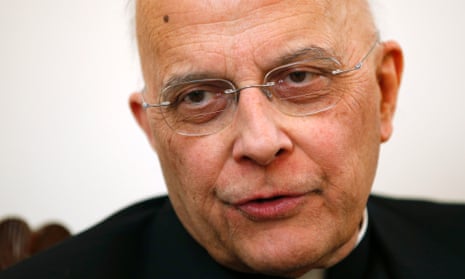In much of the rest of the world, religious persecution involves forced conversion, mob attacks and genocide by violence or by neglect. In America, your employee might be able to use the health insurance for which you pay a part of the premium to get an IUD.
American conservatives who inveigh against the erosion of their religious liberties are crying that they’re the oppressed minority: not because they face forced conversion or death, but because they’re not getting their own way on same-sex marriage or the Obamacare contraception mandate (though the US supreme court’s conservative, male majority did side with them in the Hobby Lobby contraceptive access case).
But actual minority religious groups – including Christian groups – who face genuine persecution, cast American Christians’ claims of persecution in a ridiculous and embarrassing light.
The eyes of the world have been on Iraq’s Mount Sinjar, where members of the Yazidi religious minority were besieged and threatened with death by the brutal fighters of the Islamic State, for more than a week. Though American airstrikes and Kurdish militia cleared a way for 20,000 to escape, others remain trapped and in need of help.
The Yazidi, who practice an ancient syncretistic faith derived from Zoroastrianism, are just one example of how various religious minorities are under threat. In Myanmar, despite the country’s transition to democracy, a Muslim community called the Rohingya has been herded into squalid camps and deprived of medicine and other necessities, even facing mob violence. Meanwhile, the Middle East’s Christian population has been virtually wiped out in the chaos unleashed by the American invasion of Iraq and the convulsions of the Arab Spring.
Contrast that with the exaggerated sense of victimhood on full display recently in Washington DC when former presidential candidate Rick Santorum debuted the “documentary” One Generation Away. This film uses interviews with dozens of prominent Christian conservatives – from staunch Catholics to evangelical Protestant – to make the case that religious freedom in America is on the brink of complete destruction.
One particularly startling quote came from Cardinal Francis George, the archbishop of Chicago, who said, “I expect to die in bed, my successor will die in prison and his successor will die a martyr in the public square.”
You read that right: a cardinal of the Catholic church believes that the United States is just a few years away from outlawing Catholicism.
It’s not just him: the film as a whole unsubtly suggests that the US is poised to crush American Christians in the same way that Hitler’s Germany did theologians like Dietrich Bonhoeffer. According to Right Wing Watch’s report on the film, the Nazi analogies fly fast and furious: one interviewee even said that “the American church is slightly more attuned to the rumbling heard in the distance than the German church was in the 30s. The bad news is, only slightly, right?”.
These Christians equate not getting their own way in the political sphere – not being able to impose their idiosyncratic religious views on others with the force of law – with brutal and unjust persecution. As America becomes more diverse and less religious than ever, white conservative Christian men are losing their disproportionate influence on politics and, because they think of themselves as the natural and deserving custodians of that power, having to share it feels like a shocking injustice.
But part of the justification for their victim routine is theological: the Bible predicts that Christians will be persecuted, so these conservatives believe that it must be true. Acknowledging the true extent of both their current and historical power and influence would generate an uncomfortable cognitive dissonance with a text that often takes the side of – and venerates leaders who serve – the low and the downtrodden.
The only remedy is thus to declare, despite the evidence, that they are truly a persecuted minority in a country filled with other self-identified Christians, which makes a mockery of the true victims of religious oppression all around the world.
